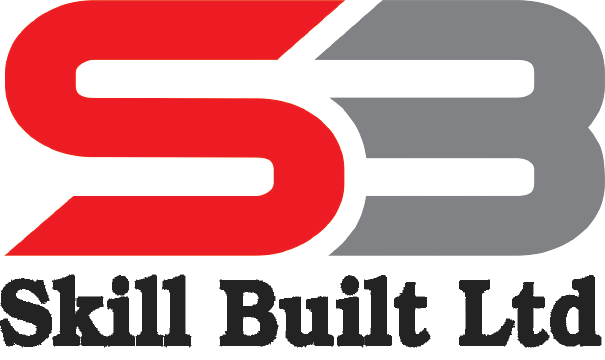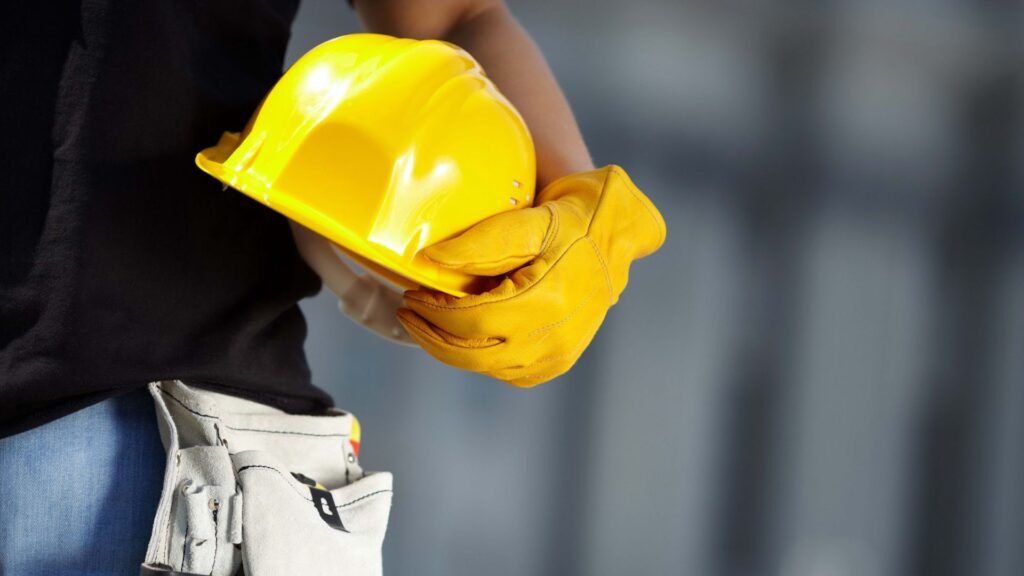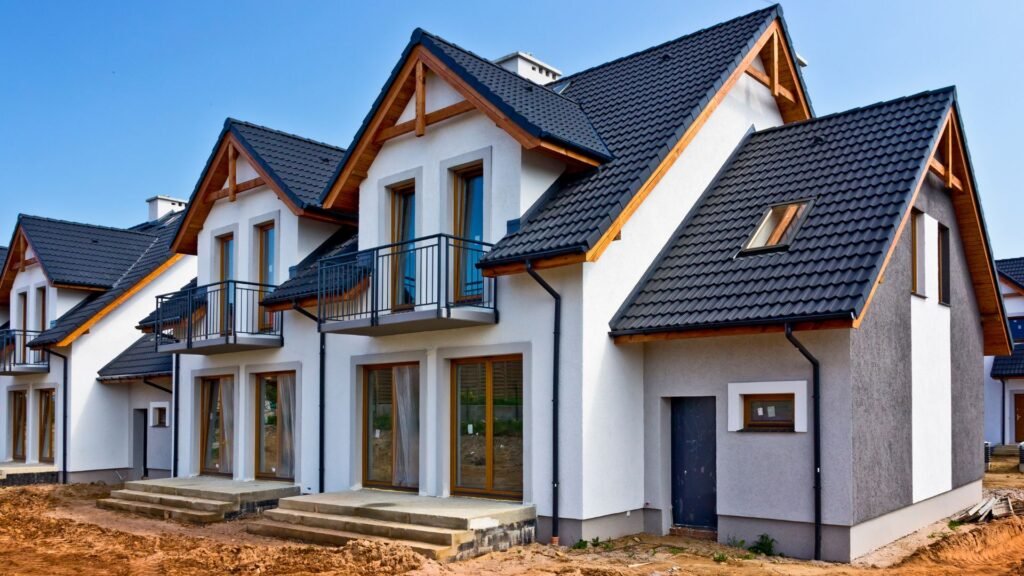Welcome to your go-to guide for making sure the builder you hire in New Zealand is fully qualified, licensed, and trustworthy. Whether you’re planning a new build, renovation, or small home improvement project, checking a builder’s credentials isn’t just smart, it protects your money, property, and peace of mind. In this article, you’ll learn exactly how to verify a builder’s licence, what other qualifications to look for, and the red flags that should make you walk away. Don’t leave one of your biggest investments to chance, use this step-by-step guide to choose the right professional for the job.
To check a builder’s credentials in New Zealand, visit the Licensed Building Practitioners Register, enter their name or licence number, and confirm they’re licensed for the type of work you need. Also, ask for proof of insurance, trade association memberships (like NZ Master Builders), and recent project references to ensure they’re qualified and reliable.
Table of Contents
What Are Builder Credentials In New Zealand?
Builder credentials in New Zealand refer to the qualifications, licences, and professional background that prove a builder is skilled, reliable, and legally allowed to carry out construction work. Before starting any project, whether you’re building a new home, renovating, or adding an extension, it’s important to understand exactly what these credentials mean. They aren’t just formalities; they help protect you from poor workmanship, legal problems, and financial loss.
One of the most important builder credentials in New Zealand is licensing under the Licensed Building Practitioners (LBP) scheme. This is a government-backed program managed by the Ministry of Business, Innovation and Employment (MBIE). An LBP has been assessed as competent to carry out or supervise work that is classified as “restricted building work”, tasks that are critical to a building’s structural integrity or weatherproofing. You can easily check if a builder is licensed by searching their name or licence number in the official LBP public register.
Next, look for certifications from recognised trade associations. Builders who are members of professional groups like Registered Master Builders or New Zealand Certified Builders (NZCB) have met additional criteria. These associations often have strict entry requirements around experience, financial stability, and insurance. They also offer consumer protection such as guarantees and dispute resolution services, which add peace of mind.
Another key builder credential is insurance. A professional builder should have both public liability insurance and contract works insurance. Public liability insurance covers damage or injury caused to other people or property, while contract works insurance covers your project during construction, including damage caused by fire, theft, or weather. Always ask your builder for proof of both.
Don’t overlook the value of experience and references. A builder may be licensed and certified, but the quality of their past work and client satisfaction matter just as much. Ask for a portfolio, visit recent job sites if possible, and speak with previous clients. This gives you a better sense of how the builder communicates, sticks to deadlines, and handles issues when they come up.
It’s also important to understand the difference between being licensed and being certified. A licensed builder has met the legal requirements to carry out certain types of construction work and is registered with the LBP. A certified builder, on the other hand, is a member of an organisation like NZCB or Master Builders, which adds another layer of quality assurance but is voluntary. Being certified doesn’t replace the need for an LBP licence, but when a builder is both licensed and certified, that’s a strong signal of trustworthiness.
When evaluating any builder in New Zealand, always look at the full picture, licensing, certifications, insurance, experience, and references. These credentials work together to give you confidence that the builder can do the job right, meet legal requirements, and deliver results you can trust.
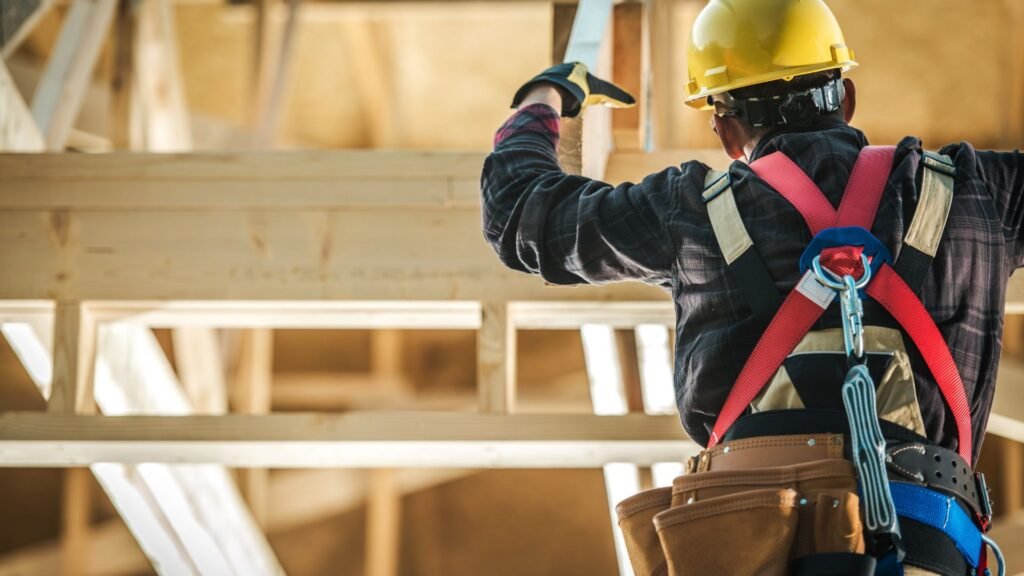
Why You Should Always Check Credentials
Hiring a builder without checking their credentials can lead to serious problems, some of which may cost you time, money, and even your home’s safety. Whether you’re building a new property or renovating an existing one, verifying a builder’s qualifications is one of the most important steps you can take before signing a contract.
- Prevent Shoddy Work, Delays, or Cost Blowouts
Unqualified builders may lack the skills, training, or licensing required to complete your project to code. This often results in poor-quality workmanship, construction delays, or unexpected costs that can spiral out of control. For example, a builder who isn’t properly trained in structural framing might use incorrect materials or cut corners, putting the stability of your home at risk. Checking credentials ensures you’re hiring someone who understands local building regulations and meets New Zealand’s standards for quality and safety. - Avoid Legal Headaches with the Council or Insurers
In New Zealand, certain types of construction, known as Restricted Building Work, can only be completed or supervised by a Licensed Building Practitioner (LBP). If you hire someone who isn’t licensed, you may run into issues when applying for building consents or inspections. Even worse, insurance companies may refuse to cover any damage or liability if they find out your project was completed by an unlicensed builder. By verifying a builder’s LBP status and insurance coverage upfront, you protect yourself from these avoidable legal and financial complications. - Peace of Mind When Building or Renovating
Renovating or building a home is a major investment. You want to know the person responsible is trustworthy, skilled, and properly accredited. Checking credentials gives you confidence that the builder is legitimate, has experience, and has been held to industry standards. It also shows that they take their role seriously and are committed to professional accountability. - Real Example: When No Check Led to Costly Regrets
One Auckland homeowner hired a local builder based on a recommendation from a friend. The builder promised low rates and a quick turnaround for a kitchen extension. But the homeowner never asked for proof of licensing or insurance. Six months in, the work stalled. The builder disappeared, leaving behind incomplete framing and unsafe electrical wiring. The council deemed the work non-compliant, and the homeowner was forced to hire another licensed builder to redo the project, doubling the original cost. A simple credentials check could have prevented the entire ordeal.
Doing your homework before hiring a builder isn’t about being overly cautious, it’s about protecting your investment and making sure your project is completed safely, legally, and to a high standard.
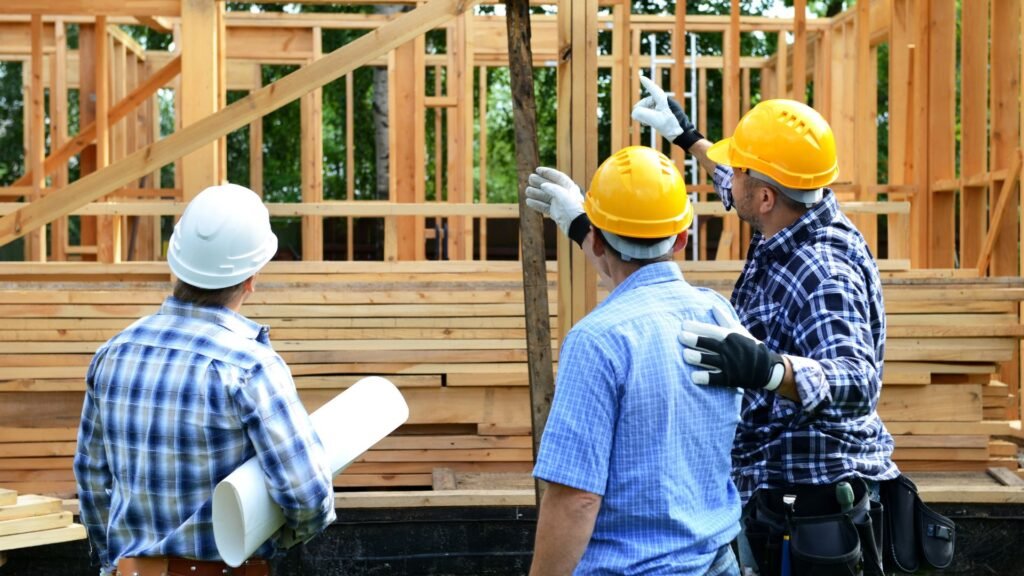
How To Check A Builder’s Licence In NZ
Hiring a licensed builder is one of the most important steps you can take when starting any construction or renovation project in New Zealand. It ensures the person working on your home meets professional standards, has proven qualifications, and is legally allowed to carry out certain types of work. Here’s exactly how you can check a builder’s licence before signing any contract or handing over money.
Step 1: Visit The Licensed Building Practitioners (LBP) Public Register
The Licensed Building Practitioners Register is the official government directory where all licensed builders in New Zealand are listed. It’s managed by the Ministry of Business, Innovation and Employment (MBIE). To access it, go to https://lbp.govt.nz. This website is free to use and available to the public.
Step 2: Enter The Builder’s Name Or Licence Number
Once you’re on the site, you can search by either the builder’s full name or their unique licence number. If you only have the name, make sure you spell it correctly and match it with any documentation they’ve provided. For more accurate results, use the licence number if available.
Step 3: Check The Licence Status And Work Category
After entering the details, you’ll see their public profile. Here’s what to look for:
- Licence status: This should say Current or Active. If the status is Suspended or Expired, don’t hire them until it’s resolved.
- Licence class: Builders in New Zealand can be licensed in different categories based on the type of work they’re qualified to do.
Step 4: Understand What Each Licence Class Means
Not all builders are licensed for every type of work. Here’s a quick overview of the most common licence classes:
- Carpentry: Covers framing, flooring, walls, and general structural woodwork.
- Foundations: Includes piling and concrete slab work.
- Roofing: Applies to installation of roofing materials and waterproofing.
- Bricklaying and Blocklaying: For brick and concrete block work.
- External Plastering: Covers stucco and other external coatings.
- Site: Applies to supervision and management of building sites.
Make sure the builder is licensed in the class that matches your project. For example, if you’re building a new home, they should be licensed in Carpentry at a minimum. If the work includes structural concrete or roofing, those licence classes should also be listed on their profile.
Step 5: What To Do If The Builder Isn’t Listed
If the builder does not appear on the LBP register, this could mean:
- They are not licensed at all.
- Their licence has expired or been revoked.
- They are using a different name or company that’s not registered.
In any case, do not proceed with the project until they provide valid proof of licensing. Ask them directly for their licence number, and verify it again. If they can’t or won’t provide it, treat that as a major warning sign. It’s not just about paperwork, it’s about protecting your home and your investment.
Final Tip
Always take a screenshot or save a copy of the builder’s LBP profile when you verify it. That way, you’ll have a record if questions or issues come up later in the project.
By following these simple steps, you can confidently confirm a builder’s qualifications and ensure your project is in safe hands. This protects you legally, gives you peace of mind, and helps you avoid costly mistakes.
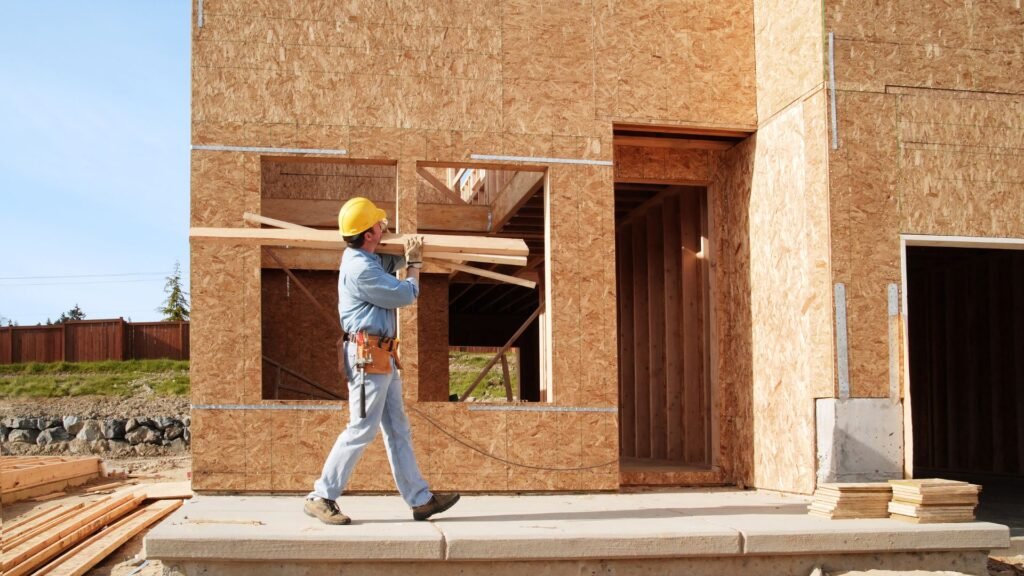
Other Credentials To Look For
When you’re hiring a builder in New Zealand, checking their licence is just the first step. A valid LBP registration confirms they’re allowed to do restricted building work, but it doesn’t always tell the full story. To get a clearer picture of a builder’s professionalism, skill, and reliability, you should also look into other important credentials. These extra checks can help you avoid costly mistakes and make sure you’re working with someone who takes their trade seriously.
Membership In Trade Associations
Builders who belong to trade associations are often held to higher standards. These memberships aren’t required by law, but they do signal that the builder is committed to quality, training, and ethical practices. Two of the most recognized groups in New Zealand are:
- NZ Master Builders Association
This is one of the most trusted building organizations in the country. To become a member, a builder must meet strict criteria around experience, financial stability, and past work. Members can also offer customers a Master Build Guarantee, which provides extra protection for defects, loss of deposit, or incomplete work. - New Zealand Certified Builders (NZCB)
Only trade-qualified builders can join NZCB. This means they’ve completed formal training, such as an apprenticeship, and hold a recognized qualification. NZCB members also have access to exclusive insurance products and are required to meet high standards of workmanship and accountability.
Qualifications And Training
A builder with formal training is more likely to produce high-quality, safe, and code-compliant work. Ask if your builder has completed a carpentry apprenticeship or holds any industry-recognized certificates. This includes NZQA qualifications or trade diplomas related to construction. Trained builders are more familiar with building regulations, materials, and modern techniques. They’re also better equipped to handle unexpected challenges on the job site.
Insurance
Never skip the insurance check. Builders should carry at least public liability insurance to cover accidents, property damage, or injuries during the build. Without it, you could be stuck paying for damages caused by their mistakes. If your project involves major work like new builds or renovations, make sure they also offer contract works insurance. This can protect your investment if something goes wrong, like a fire, theft, or natural disaster during construction. Always ask for a copy of the insurance documents and make sure they’re current and match the scope of your project.
Experience And References
Experience matters. A builder might be licensed and insured, but how many jobs have they completed like yours? Ask to see a portfolio or photos of recent projects. Better yet, request addresses of past builds or renovations so you can see the work in person. Reputable builders should also provide references, people you can call to ask about timelines, communication, budget management, and final results. If a builder hesitates or avoids giving references, that’s a warning sign.
Looking at these credentials can save you time, money, and stress. They’re not just extra paperwork, they’re proof that your builder is serious, skilled, and committed to doing the job right.
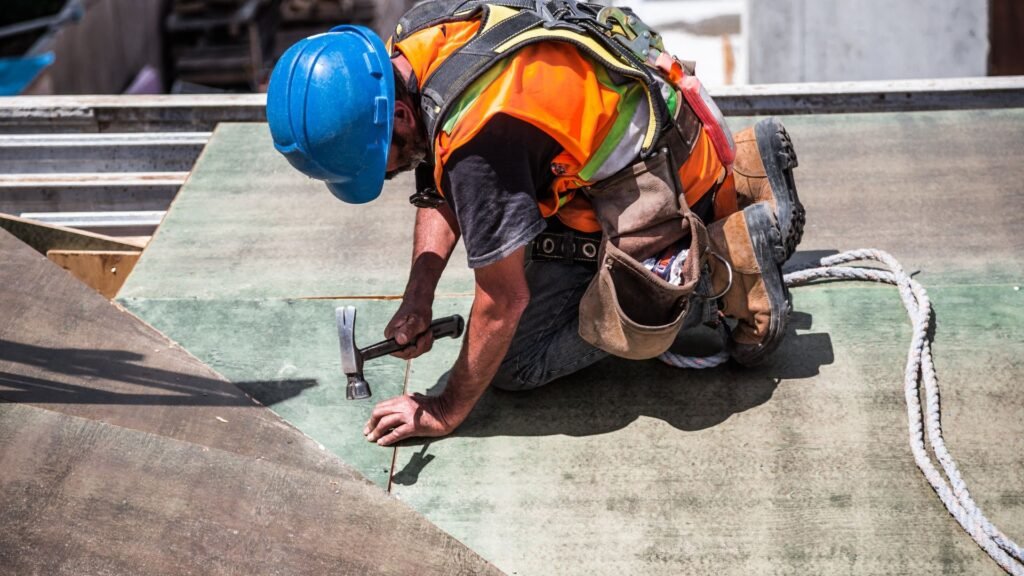
Red Flags To Watch Out For
Hiring the right builder in New Zealand means doing more than just checking credentials. You also need to pay attention to how they communicate, how they present their services, and how they handle your questions. Even if someone appears qualified on paper, certain behaviors can reveal deeper issues. Below are key warning signs you should never ignore when dealing with a potential builder.
- Vague Answers When Asked About Licensing Or Insurance
If a builder avoids direct answers or gives inconsistent information when you ask about their LBP licence or insurance coverage, that’s a major concern. Every licensed builder in New Zealand should be able to show proof of their licence and provide insurance details upon request. Builders who dodge these questions may not be legally qualified or may be hiding something. Always verify their licence on the Licensed Building Practitioners Register and ask for a copy of their insurance certificate. - Refusal To Provide References
A trustworthy builder should have no issue sharing contact details for past clients or showing you previous projects. If they refuse or say their work is confidential, be cautious. Genuine professionals are proud of their work and happy to let you speak to former customers. Lack of references could mean they have something to hide, like a history of disputes, unfinished projects, or negative experiences. - No Written Contract
Never proceed with any building work in New Zealand without a written contract. A verbal agreement is risky and leaves you with little legal protection if things go wrong. Builders who resist signing a contract often do so because they don’t want to be held accountable for timelines, costs, or workmanship. A proper contract should include scope of work, timelines, payment terms, and a dispute resolution clause. - Rushing You To Pay Upfront
Some builders ask for a large deposit or full payment before work begins. That’s a clear red flag. While it’s normal to pay a deposit (often around 10–20%), any builder who demands most or all of the money before lifting a hammer is putting you at risk. It could be a scam, or they may take your money and disappear. Payments should be staged based on milestones and always documented in the contract. - Deals That Sound Too Good To Be True
If a builder offers prices that are significantly lower than others, be cautious. Cheap quotes often lead to cut corners, delays, or unfinished work. Some builders bait clients with lowball estimates and later increase the cost through surprise add-ons. Always compare quotes, ask what’s included, and make sure every detail is written down. Low pricing should never replace credibility or proven skill.
Recognizing these red flags early on helps you avoid costly mistakes, disputes, or unsafe construction. Hiring a builder is a major decision, trust your instincts, ask the right questions, and never feel pressured to commit on the spot. Choosing someone who is upfront, reliable, and qualified gives you peace of mind and protects your investment.
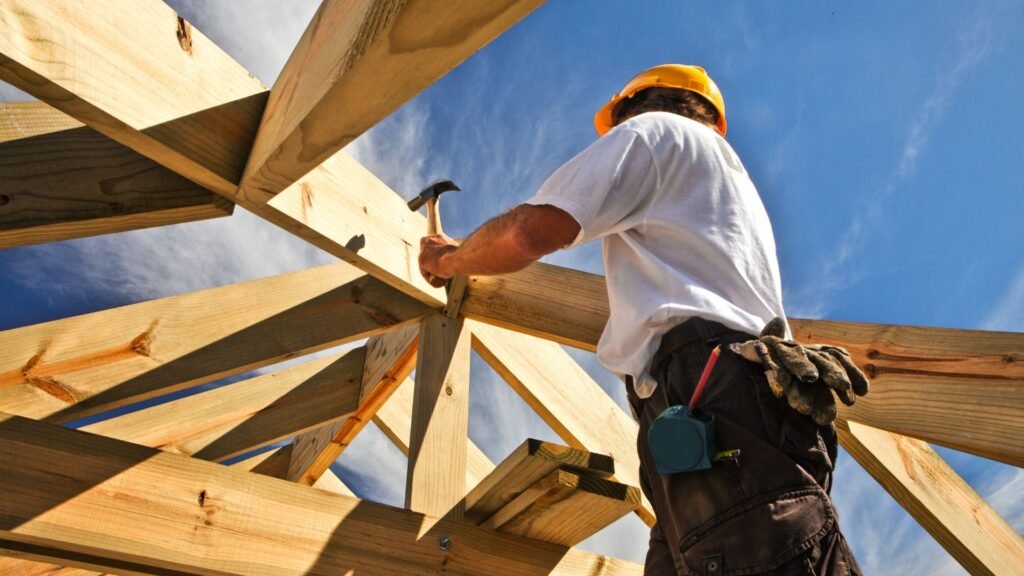
What To Do If You Suspect A Builder Isn’t Legit
Hiring a builder is a big decision, and if something feels off, it’s important to act quickly. Unlicensed or dishonest builders can cost you time, money, and peace of mind. Whether it’s a gut feeling or a clear red flag, here’s what to do if you suspect the builder you’re dealing with isn’t legitimate.
- Stop The Project Immediately Before Money Exchanges Hands
If you haven’t paid anything yet, hit pause. Do not transfer deposits or sign off on further work until you verify the builder’s credentials. This step alone can prevent major losses. If something doesn’t add up, like a missing licence, unclear paperwork, or constant excuses, don’t ignore it. A trustworthy builder won’t pressure you to pay or rush into contracts without proper documentation. - Report The Builder To MBIE Or Your Local Council
In New Zealand, the Ministry of Business, Innovation and Employment (MBIE) handles complaints related to building professionals, especially Licensed Building Practitioners (LBPs). If the builder is operating without a licence or breaching building regulations, report them through the official MBIE channels. You can also contact your local council’s building department to notify them of any non-compliant work or illegal activity. This helps protect others in your area from facing the same risks. - Get Legal Advice If A Contract Was Already Signed
If you’ve already signed a contract or paid a deposit, contact a legal professional immediately. A lawyer or legal adviser can review your agreement, explain your options, and help you recover money if necessary. Keep all written communication, receipts, and documents, these will be valuable if you need to pursue a complaint or claim damages. If the amount involved is small, you may be able to take the case to the Disputes Tribunal for resolution without hiring a lawyer.
By taking fast, decisive action, you protect your investment and send a clear message that low standards won’t be tolerated. Always trust your instincts, double-check credentials, and don’t be afraid to walk away if something doesn’t feel right.
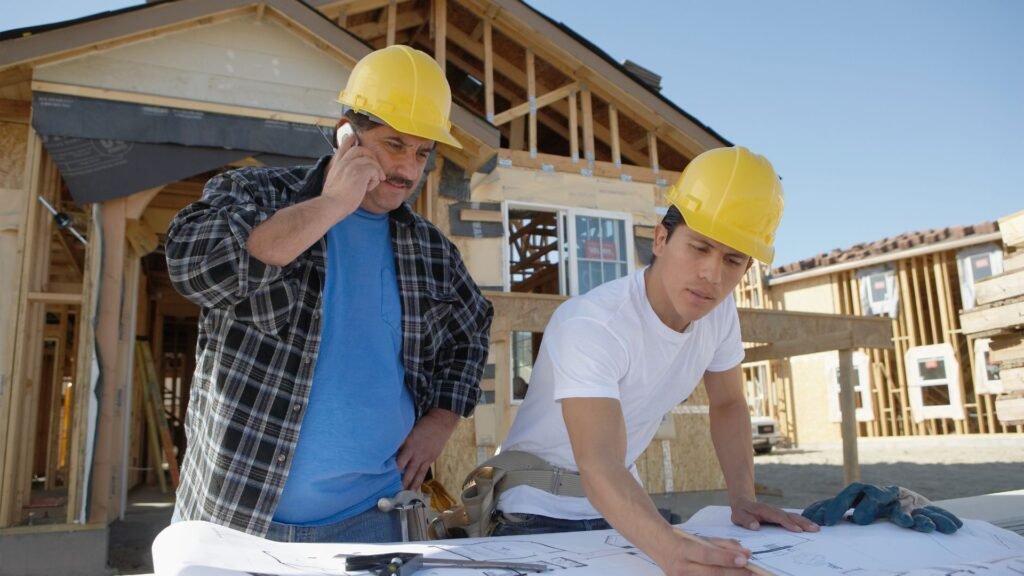
Bonus Tips For Choosing The Right Builder
Hiring the right builder is one of the most important decisions you’ll make during any construction or renovation project. Even if someone looks good on paper, there are still key steps you should take to confirm they’re a good fit for your budget, your timeline, and your expectations. Below are practical, experience-based tips that help you avoid stress, miscommunication, and costly mistakes.
- Interview 2–3 Builders Before Making A Decision
Don’t settle for the first quote or name you come across. Speak with at least two or three builders so you can compare their approach, pricing, timelines, and communication styles. This helps you understand what’s standard in your area and spot any outliers who overpromise or underdeliver. During the interviews, ask specific questions about their experience with similar projects, how they handle delays, and what their current workload looks like. A confident, qualified builder will be open and transparent in their answers. - Use A Written Contract Every Time
Never rely on verbal agreements. Always get the scope of work, timeline, payment schedule, and responsibilities in writing before the job starts. A written contract protects both you and the builder if anything goes wrong. It should include details like materials to be used, milestones, deposit amounts, and what happens if the project is delayed or runs over budget. Contracts aren’t just for large builds, they’re just as important for renovations or small jobs. - Choose Someone Who Communicates Well
Strong communication is a sign of professionalism and trust. If a builder takes days to return your calls or avoids giving straight answers during the early stages, that’s a warning sign. Good builders keep you informed from start to finish. They explain processes clearly, provide realistic expectations, and give regular updates. You should feel comfortable asking questions and raising concerns at any stage of the project. - Check Online Reviews (Google, NoCowboys.co.nz, TradeMe Services)
Reputation matters. Before you sign anything, look up the builder’s name or business on trusted review platforms like Google, NoCowboys.co.nz, and TradeMe Services. Pay attention to recent reviews, not just overall ratings. Look for patterns, are clients consistently happy with the builder’s workmanship and punctuality? Are there complaints about budget blowouts or poor communication? Real customer experiences give you valuable insight that can’t be found in quotes or brochures.
Choosing the right builder in New Zealand isn’t just about finding someone with a licence. It’s about selecting someone reliable, experienced, and easy to work with. Use these tips to make sure your project is handled by someone who values your time, your money, and your peace of mind.
Ready to hire a trusted builder you can verify? Visit Builders Kapiti Coast to connect with licensed, qualified professionals across New Zealand, no guesswork, just peace of mind.
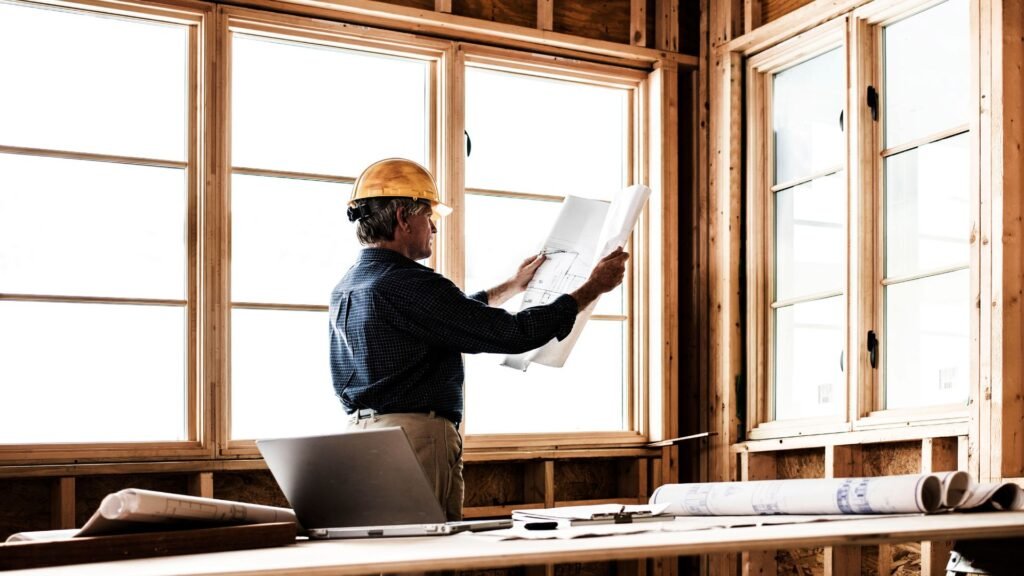
FAQs: About How To Check Builders’ Credentials In NZ
Why should I check a builder’s credentials in NZ?
Checking a builder’s credentials ensures they are properly licensed, experienced, and qualified to handle your project. It helps you avoid legal issues, financial loss, and poor workmanship.
How do I check if a builder is licensed in New Zealand?
Go to the Licensed Building Practitioners Register at their website. Enter the builder’s name or licence number to see if they are registered and what kind of work they’re licensed to do.
What is an LBP (Licensed Building Practitioner)?
An LBP is a professional licensed by the Ministry of Business, Innovation and Employment (MBIE) to carry out or supervise restricted building work in New Zealand. This includes critical work like foundations, framing, and roofing.
What other credentials should a good builder have?
Look for trade association memberships (like NZ Master Builders or NZ Certified Builders), proof of insurance, qualifications, and verified references from past projects.
Is being part of Master Builders or NZCB required?
No, it’s not required—but membership in these groups shows the builder meets extra standards for quality, insurance, and ethics. It adds a layer of credibility.
Can I trust online reviews of builders in NZ?
Online reviews can help, but always verify credentials through official registers and request references. Use trusted platforms like NoCowboys.co.nz or TradeMe Services.
What if a builder refuses to show credentials?
That’s a red flag. Reputable builders are happy to show licences, insurance documents, and references. If they avoid your questions, look elsewhere.
What questions should I ask before hiring a builder?
Ask if they are licensed, what kind of work they specialize in, if they have insurance, and if they can provide references. Always ask for a written contract.
Are there penalties for using an unlicensed builder?
Yes. If you hire someone for restricted building work without a licence, you may face compliance issues with the council and your insurance could be voided.
Can I report an unlicensed or dishonest builder?
Yes. You can report them to the MBIE, the local council, or the Disputes Tribunal if there’s a contract dispute. Always keep written documentation of your dealings.
Conclusion
Trusting a builder is important, but verifying their credentials is essential if you want to avoid costly mistakes. In New Zealand, hiring someone based on word of mouth alone can leave you vulnerable to unlicensed work, poor craftsmanship, or legal issues down the track. Before signing any agreement or handing over a deposit, take the time to check their licensing status through the LBP register, ask for proof of insurance, request client references, and confirm trade memberships. These simple steps can save you time, money, and stress. A licensed and experienced builder won’t hesitate to provide these details, and using the tools and questions from this post ensures you’re choosing someone who’s truly qualified for the job. Taking a few extra minutes to verify a builder’s background gives you the confidence to move forward with your project, knowing it’s in the hands of a professional you can trust.
